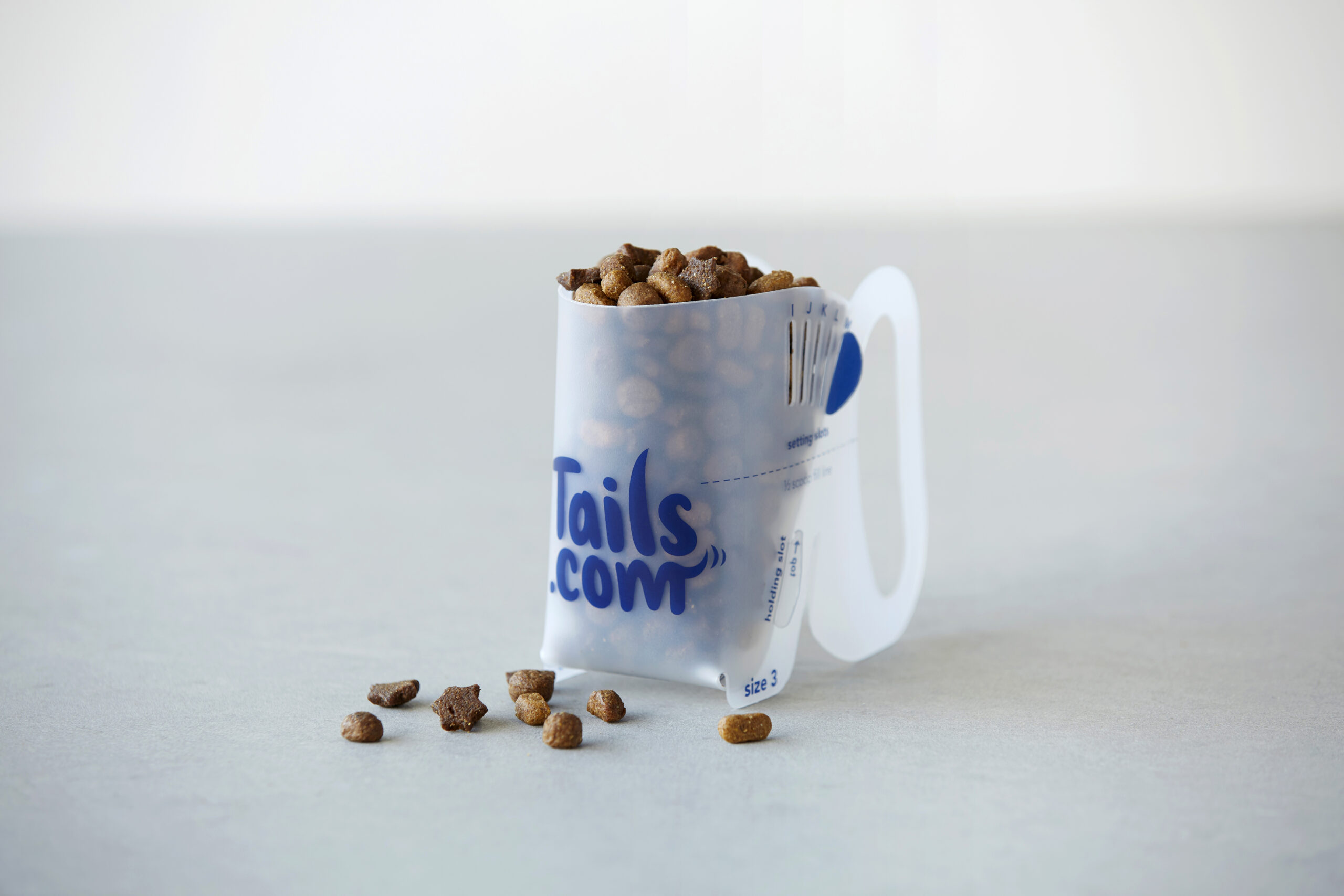Keeping your dog in good shape all starts with the right diet. Because just like us humans, when our pups eat too much of the wrong foods the weight can pile on. While not eating enough can lead to weight loss and malnutrition. Diet contributes to your dog’s overall health and wellbeing, which is why it’s so important to get right. Below we reveal the ins and outs of weight management dog food.
Top tips to keep in mind
Every dog is different. And what may be the perfect diet for one dog may not be for another. You need to consider your dog’s age, breed, current weight, health, activity levels and metabolism. Because this will affect the type of ingredients and nutrition they need, as well as how much they need to eat.
To maintain a healthy weight, the levels of proteins, fats and fibre need to be the right balance for your dog’s needs. And your dog’s portion sizes should be measured and fed at regular meal times.
Dog food for weight loss
Sometimes when owners put their dog on a diet to lose weight, they’re concerned their pups are always hungry. But then the bad habits can creep in. You may start sneaking more food, or feeding table scraps and treats. Because let’s face it, who can resist those big brown eyes!
But when you feed a specific weight loss dog food, it’s packed with essential ingredients designed to help your pooch lose weight. The best dog food for weight loss is low in fat and high in slow-release carbohydrates to leave your dog feeling full.
Related blog: Managing your dog’s weight and how to keep it under control
Dog food for underweight dogs
If your dog needs to gain weight, you need a more calorie dense diet that’s formulated with balanced protein, fats and carbohydrates according to your dog’s individual needs. This will ensure your pooch gains weight steadily over a healthy period of time.
We know helping your dog put on weight can be difficult if they’re a fussy eater. So you need to keep flavour in mind too and choose a variety your dog will love. Don’t be afraid to try a few different flavours to encourage your dog’s interest in their food.
Dog food for puppies
Puppies grow up fast, and need to eat more to support healthy growth across their bones, joints, muscles, organs and immune system. Which means they need to eat more food than an adult dog.
Puppy food is usually high in protein and high in fat to help them grow into a healthy adult dog. Puppies also benefit from minerals such as calcium and phosphorus according to their breed and age to help support their development. But as your puppy will go through changes week by week, it’s important to monitor their weight and adjust their diet as necessary. You can check if your dog is over or underweight with the body condition score test. This is a great guideline to ensure your dog stays a healthy weight throughout their life. And if your dog is overweight, a dog weight loss calculator is a handy tool that will suggest an ideal feeding amount in calories.
Dog food for healthy weight management
We know how important your dog’s health is to you, which is why at tails.com we incorporate weight management into all our dog food, offering a unique recipe for each individual dog. Whether your pooch is overweight, underweight or a growing puppy, we’ll produce a tailored recipe just for them with all the nutrients they need. You’ll also be given a recommended portion size and an adjustable scoop so you know you’re serving the right portion sizes every time. And now you can get your first box for 50% off when you sign up today.


What is the difference between wet and dry food. We have only ever used dry, but would our dog benefit from having both?
It depends on the dog – some dogs love having a mix of the two, some prefer one or the other! Dry food is nutritionally complete, so they’re not missing out by having dry on its own 🙂